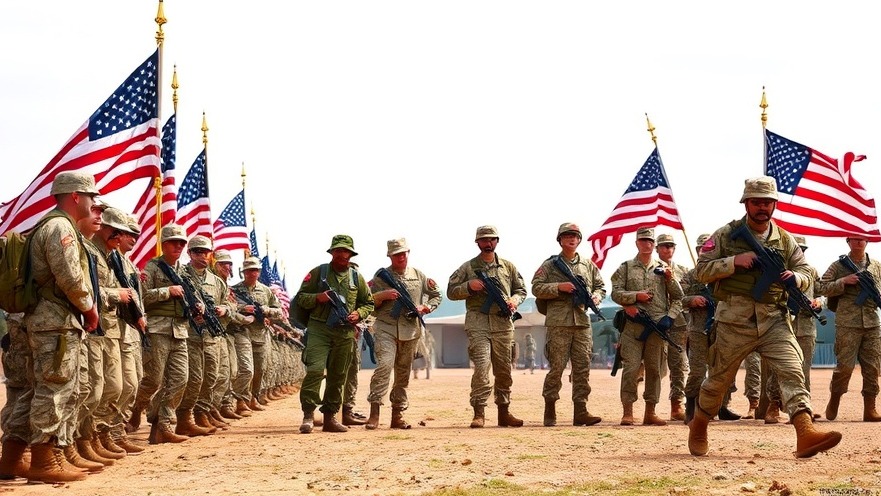
Understanding the Government Shutdown Snafu
The current government shutdown, now approaching a week, has sent shockwaves through many sectors, particularly the military community. Secretary of War Pete Hegseth has not shied away from addressing the turmoil, emphasizing that effects on military readiness are already being felt. During an interview on 'The Sunday Briefing,' Hegseth referred to ongoing negotiations as a "Chuck Schumer special," pinpointing the significant disruptions caused by partisan politics in funding allocations. As service members begin to worry about their paychecks, concerns mount over the potential hollowing out of military effectiveness.
The Political Battlefield: War vs. Culture-War Rhetoric
Hegseth's rhetoric is indicative of a larger trend where defense matters are not only about national security but are intertwined with cultural sentiment. Criticism from Democrats, including Representative Gregory Meeks, underscores the perception that Hegseth, alongside President Trump, is not prioritizing military affairs but engaging in culture wars instead. Furthermore, Meeks condemned Hegseth’s gathering of military leaders for political speeches, labeling it a dangerous politicization of the armed forces during a time of international uncertainty and potential conflict.
The Future of Military Readiness Amid Funding Crisis
Hegseth highlights a crucial aspect of military readiness: funding. He argues that when funding is cut due to the shutdown, operational capacity suffers. There is a valid concern regarding the implications of decreased training and resources. The Secretary mentioned that without stable funding, troops might stop receiving their salaries and the maintenance of crucial operational capabilities will diminish.
Implications for Civil-Military Relations
The current administration's stance raises critical questions about the relationship between military operations and domestic political agendas. Hegseth has laid out a vision that merges military objectives with political ideologies, invoking criticism from various corners. Critics are particularly alarmed by Trump's remarks suggesting using American cities as 'training grounds' for military operations, an idea Meeks classified as reminiscent of authoritarian regimes.
Broader Context of Military Governance
This turmoil is not isolated; it points to a growing intersection of military governance and policy-making that reflects broader societal divisions. With the global political landscape becoming increasingly volatile, the U.S. military's focus should ideally remain on traditional defense priorities. However, Hegseth and Trump’s approach seems to misplace focus on internal cultural battles rather than affirming military preparedness and leadership.
A Call for Clear Leadership and Direction
As the shutdown continues, the call for clear and competent leadership in the Department of War becomes paramount. The debate around military priorities, readiness, and engagement in culture wars leads many to wonder if the current leadership can fulfill the crucial mission of defending the nation. The focus should return to effective governance that champions the welfare and readiness of service members over internal political agendas.
Conclusion: The Vital Importance of Focusing on National Security
In light of ongoing political tensions and the imminent threat posed by the shutdown, citizens should advocate for a focus on national security priorities. It is essential to transcend partisan politics to ensure that military forces receive the support and direction they need. This ongoing situation serves as a stern reminder of the implications of mixing military readiness with political posturing.
The importance of a strong, well-supported military cannot be overstated as it works to defend against external threats while navigating the complexities of internal political landscapes. In this climate, it is more critical than ever for the Department of War to clarify its mission and prioritize military readiness over political spectacle.
 Add Element
Add Element  Add Row
Add Row 



Write A Comment